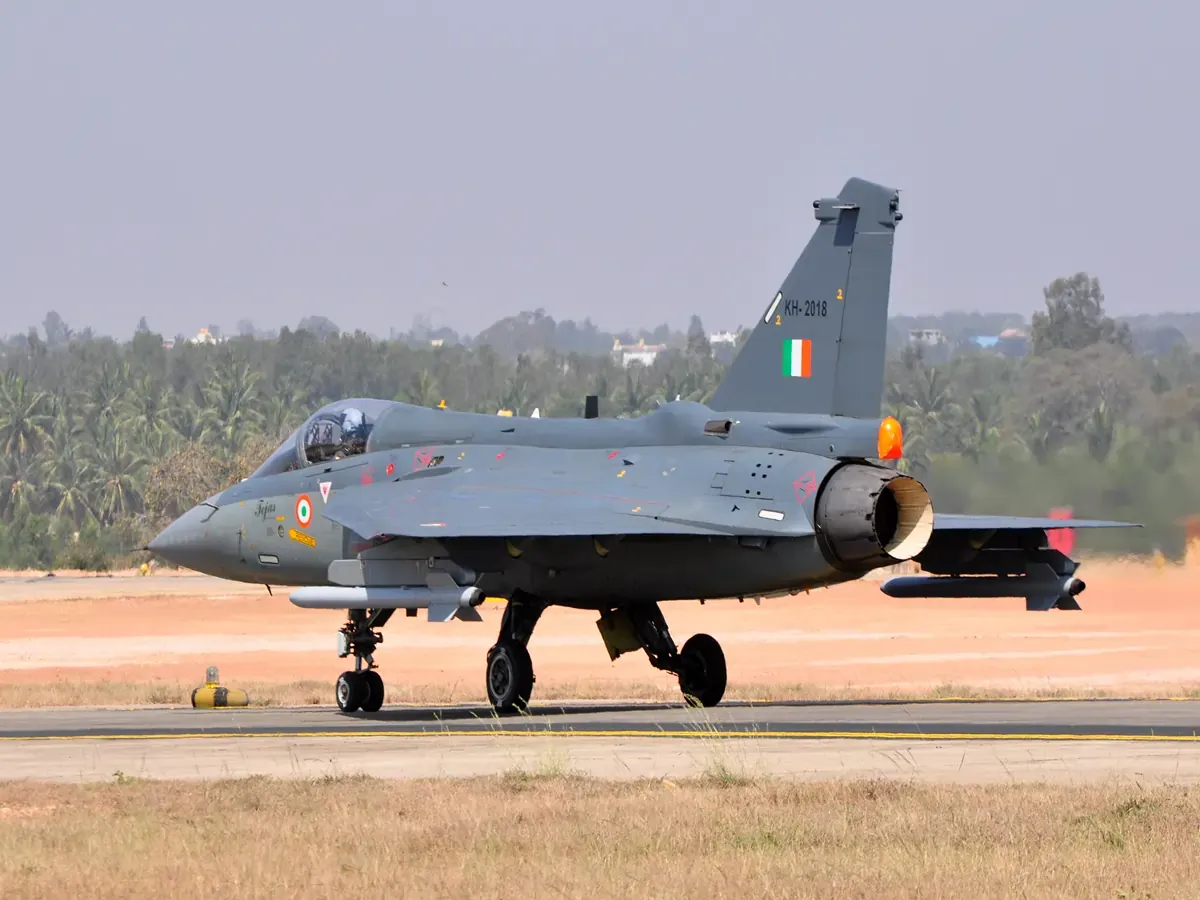Market News
₹62,000 crore Tejas order boosts HAL’s prospects, yet shares remain muted for now; here is why

4 min read | Updated on August 21, 2025, 14:53 IST
SUMMARY
HAL shares traded flat-to-positive on Thursday as the company received approval for the procurement of 97 Mk-1A Tejas aircraft. However, shares remain muted despite such a large order win as the company struggles with slower execution, which consequently has impacted its financial growth.
Stock list

HAL shares have rallied at CAGR of 59% over 3-years in comparison to 18% CAGR growth in its profit. | Image: Shutterstock
The new order bodes well for the company to keep its pole position in the defence sector. The company is the largest defence contractor with a total order book of ₹1.89 lakh crore as of FY25, up from ₹94,127 crore in FY24. With the current order win, the total order book is expected to cross the ₹2 lakh crore mark.
Apart from the above 97 aircraft, the company’s expected order pipeline remains strong with 43 ALH for IAF/Army, 10 DO-228 for Navy/Coast Guard, and the upgrade of 40 Dornier for IAF.
Despite such a strong order win, the shares showed a very muted response as they closed 0.3% higher, giving up early gains of 3% on Wednesday. Similarly, shares traded 0.5% higher at ₹4,494 apiece on the NSE after CCS approval for the ₹62,000 crore order.
New order book already priced in
The first news of this order was confirmed in September 2023 when Air Chief Marshal V.R. Chaudhari publicly stated the Air Force’s decision to order 97 Tejas aircraft. After this, the Defence Acquisition Council started the final procurement process in November 2023 and issued the final tender in April 2024 to HAL.
Hence, the impact of this major order win was largely discounted in the current share price, as the process started almost two years ago. In addition, this order followed the earlier order of 83 Tejas Mk-1A aircraft by the Air Force.
Slower execution
Considering the complex process of manufacturing defence equipment, the order execution takes longer than expected. Hindustan Aeronautics, which currently holds orders for 220 Tejas aircraft, has delivered 40 till now.
The first order of 20 aircraft was signed in 2006 and planned to be delivered in 2011, and the second 20 was signed in 2010, which was planned to be delivered in 2016. The first order was delivered in 2024, and the second in 2025, almost 13 and 9 years laterr than the planned date.
However, the management plans ramp up the execution and expect the deliveries to start by FY26 and for the recent order beyond FY30.
Slower revenue recognition
Despite the strong visibility in the order book, the slower order execution has led to a very slow and single-digit top-line growth. As of FY25, the company’s three-year sales growth stood at 8% CAGR. With an order book of ₹1.89 lakh crore, the total turnover stood at ₹30,981 crore, which grew by a low single digit at 2%. Consequently, the net profit grew by 18% CAGR over a three-year period, as the net profit stood at ₹8,364 crore.
So, the slower execution leads to slower revenue recognition, which in turn impacts the overall turnover for the company. In addition, this could also lead to a rise in cost, which impacts margin.
Hence, investors remain less excited about the new order win due to slower execution.
In comparison to slower net profit growth, the share price growth has been stellar. The stock price has far exceeded the trend with a 59% CAGR over the same period, which indicates much of the expected growth has already been discounted in the price.
In addition, the valuations also remain lofty at a price-to-earnings ratio of 36x, which is significantly higher than the five-year median of 15x.
Stable growth in Q1FY26
In Q1 FY26, the company’s revenue for the quarter grew 10.8% YoY to ₹4,819 crore as compared to ₹4,347 crore seen in the same period last year.
On the operational front, the EBITDA for the quarter jumped 29.4% YoY to ₹1,282 crore as against ₹990 crore in the previous year’s similar quarter.
Lastly, the net profit stood at ₹1,373 crore as compared to ₹1,431 crore in the same period last year.
Summary
The higher-order book wins do not necessarily excite investor sentiment, as execution of the order book remains the most crucial and significant part of it.
In the case of HAL, which is struggling with the order book execution, share price gains in the past three to five years have already priced in the revenue recognition of the next three to five years.
Hence, the new order book announcements may receive a muted response from the investors.
About The Author
Next Story

